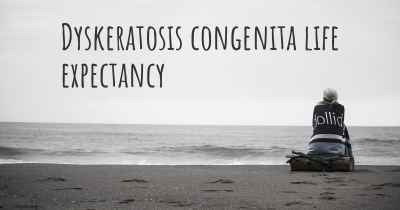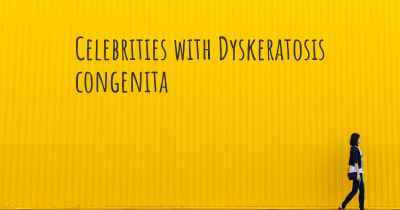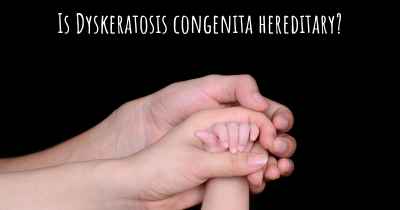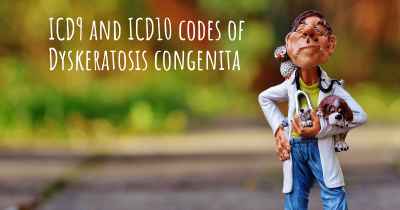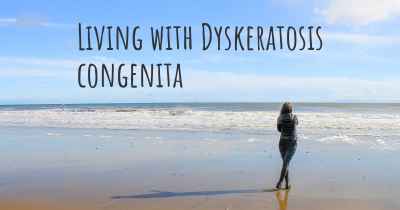Which advice would you give to someone who has just been diagnosed with Dyskeratosis congenita?
See some advice from people with experience in Dyskeratosis congenita to people who have just been diagnosed with Dyskeratosis congenita

Dyskeratosis congenita (DC) is a rare genetic disorder that affects multiple systems in the body. If you have recently been diagnosed with DC, it is understandable that you may be feeling overwhelmed and uncertain about what lies ahead. While DC is a complex condition, there are several important pieces of advice that can help you navigate this journey:
1. Seek expert medical care
DC is a rare disorder, and it is crucial to find a healthcare team that specializes in treating this condition. Look for doctors who have experience with DC and can provide comprehensive care. They will be familiar with the latest research, treatment options, and can guide you through the management of DC-related complications.
2. Educate yourself about DC
Knowledge is power, and understanding DC can empower you to make informed decisions about your health. Take the time to learn about the genetic basis of DC, its symptoms, potential complications, and available treatment options. Reliable sources such as medical journals, reputable websites, and patient support organizations can provide valuable information.
3. Connect with support networks
Living with a rare condition like DC can be isolating, but you are not alone. Reach out to patient support organizations and online communities dedicated to DC. Connecting with others who share similar experiences can provide emotional support, practical advice, and a sense of belonging. These communities can also help you stay updated on the latest research and treatment advancements.
4. Develop a comprehensive treatment plan
Work closely with your healthcare team to develop a personalized treatment plan that addresses your specific needs. This may include regular monitoring of blood counts, bone marrow transplantation, and management of DC-related complications such as pulmonary fibrosis or liver disease. Regular follow-ups and open communication with your doctors are essential to ensure your treatment plan remains effective.
5. Prioritize your overall well-being
Living with DC can be challenging, both physically and emotionally. It is important to prioritize your overall well-being. This includes maintaining a healthy lifestyle, getting regular exercise, eating a balanced diet, and managing stress. Engaging in activities you enjoy, spending time with loved ones, and seeking professional counseling or therapy can also contribute to your emotional well-being.
6. Stay proactive in managing complications
DC can lead to various complications that require proactive management. Regular screenings for cancer, such as oral, skin, and gastrointestinal examinations, are important. Additionally, monitoring for lung, liver, and bone marrow complications is crucial. Be vigilant about any new symptoms or changes in your health and promptly report them to your healthcare team.
7. Explore available treatment options
While there is currently no cure for DC, there are treatment options available to manage its symptoms and complications. These may include medications to improve blood counts, bone marrow transplantation, and targeted therapies for specific complications. Stay informed about the latest research and clinical trials, as they may offer promising avenues for future treatments.
8. Plan for the future
Living with DC requires long-term planning. Discuss your condition with your healthcare team and consider creating an advance care plan. This will help ensure your wishes are respected and that you receive appropriate care in the future. It may also be beneficial to consult a genetic counselor to understand the inheritance pattern of DC and explore options for family planning.
9. Stay hopeful and resilient
Living with a rare genetic disorder can be challenging, but it is important to stay hopeful and resilient. Advances in medical research are constantly being made, and new treatment options may become available in the future. Surround yourself with a supportive network of family, friends, and healthcare professionals who can provide encouragement and help you navigate the ups and downs of living with DC.
Remember, you are not defined by your diagnosis. While DC may present unique challenges, it does not diminish your worth or potential. With the right medical care, support, and self-care, you can lead a fulfilling life and overcome the obstacles that come your way.
